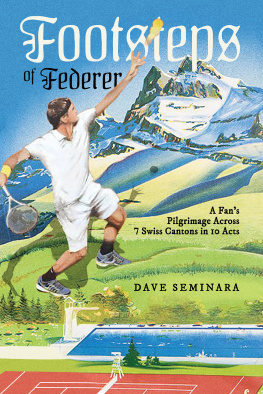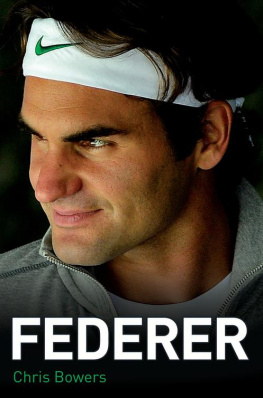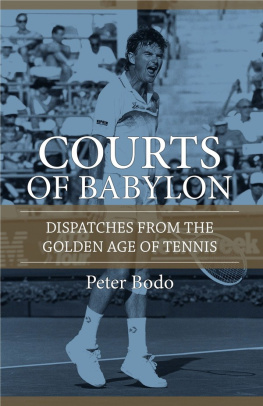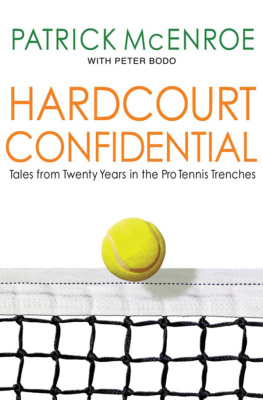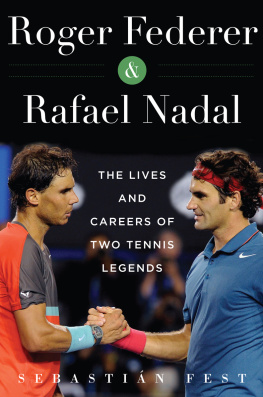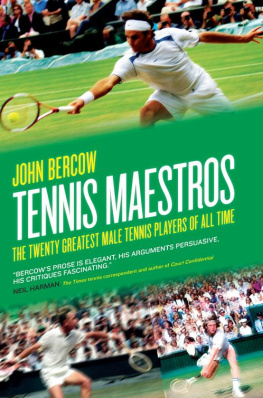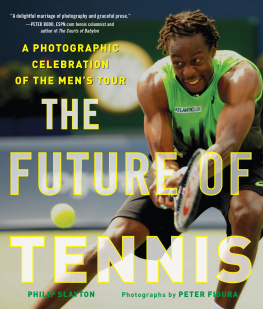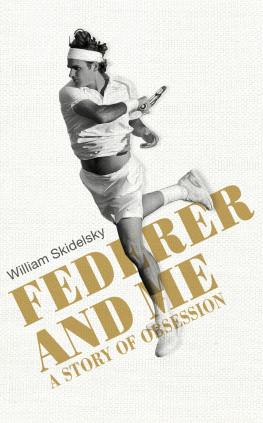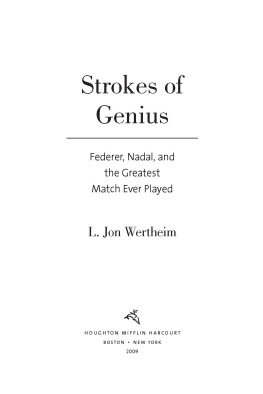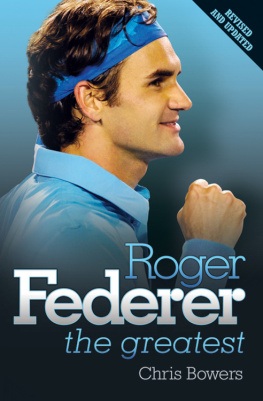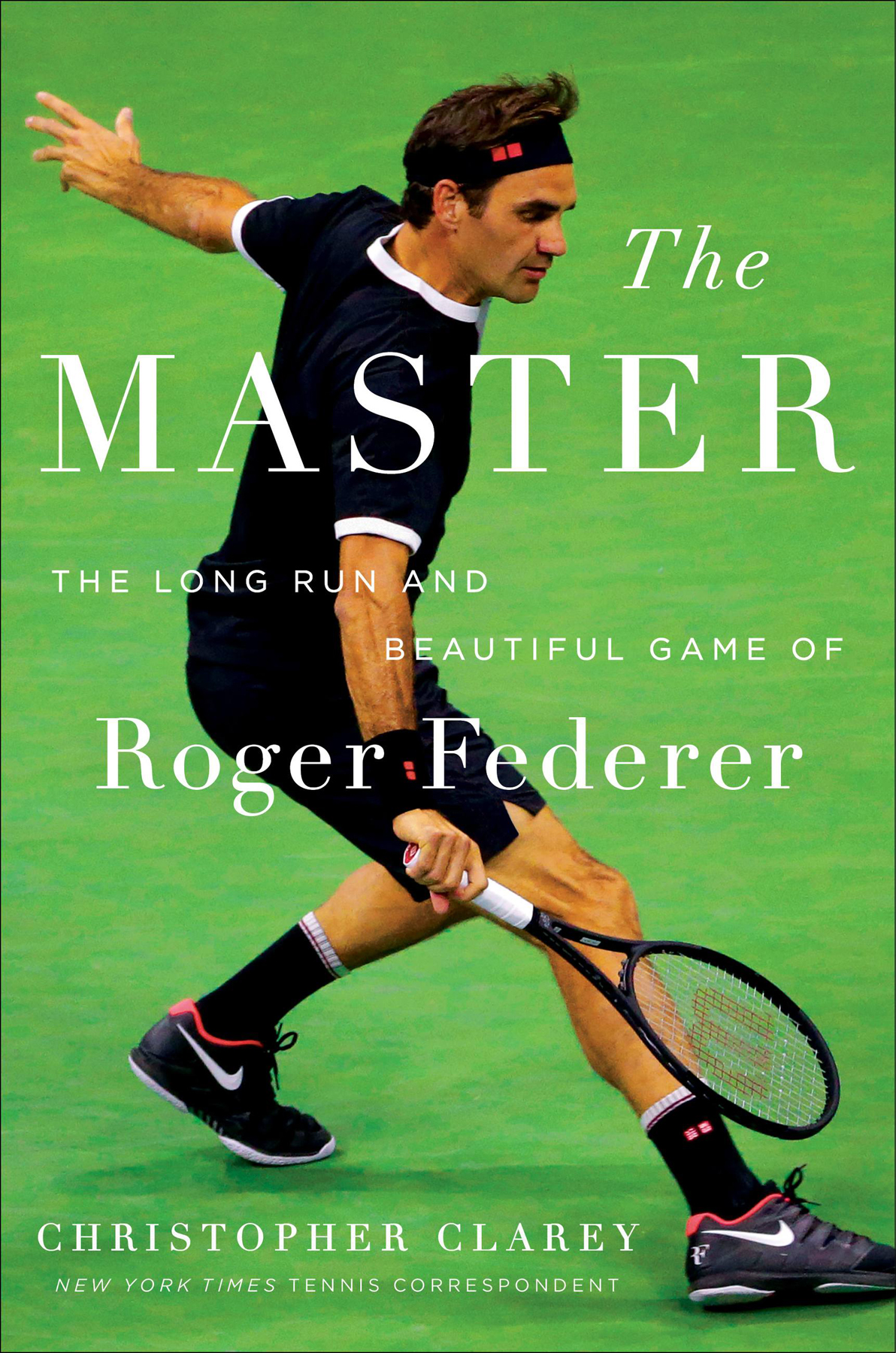Cover design by Jarrod Taylor.
Cover photograph AP / Seth Wenig.
Cover copyright 2021 by Hachette Book Group, Inc.
Hachette Book Group supports the right to free expression and the value of copyright. The purpose of copyright is to encourage writers and artists to produce the creative works that enrich our culture.
The scanning, uploading, and distribution of this book without permission is a theft of the authors intellectual property. If you would like permission to use material from the book (other than for review purposes), please contact permissions@hbgusa.com. Thank you for your support of the authors rights.
Twelve is an imprint of Grand Central Publishing. The Twelve name and logo are trademarks of Hachette Book Group, Inc.
The publisher is not responsible for websites (or their content) that are not owned by the publisher.
The Hachette Speakers Bureau provides a wide range of authors for speaking events. To find out more, go to www.hachettespeakersbureau.com or call (866) 376-6591.
TIGRE, Argentina
Midnight approached, and so did Roger Federer.
We journalists do a lot of waiting, and this wait was in a chauffeured car in a Buenos Aires suburb with Eric Carmens plaintive ballad All by Myself playing on the radio. That sounded right on key for me as I sat alone in the backseat with my notes and pre-interview thoughts, but not for Federer, who so seldom seems to be all by himself and certainly was not on this occasion.
It was mid-December 2012, the tail end of a resurgent year in which he had returned to No. 1 by winning Wimbledon, his first Grand Slam title in more than two years. Now, he had left his wife, Mirka, and three-year-old twin daughters at home in Switzerland and come for the first time to this part of South America to play a series of exhibitions that had sold out in minutes.
He was here for the money: $2 million per appearance, which guaranteed him more for six matches than the $8.5 million he had earned in official prize money in all of 2012. But Federer was also here for the memories: the chance to commune with new audiences in new places despite all the demands on his mind and body in the previous eleven months.
Other champions with their fortunes already secured would have been content to pass on the journey and the jet lag. But Federer and his agent, Tony Godsick, were thinking big picture: considering untapped Federer markets as well as untapped Federer emotions. The tour, which had taken him to Brazil and now Argentina, had surpassed their expectations, symbolized by the crowd of twenty thousand that had filled the makeshift stadium in Tigre this evening. That was a record for a tennis match in Argentina, proud land of tennis icons like Guillermo Vilas, Gabriela Sabatini, and Juan Martin del Potro, who had been Federers opponent and to some degree Federers foil.
It was great but a little strange for Juan Martin, said Franco Davin, then del Potros coach. Hes at home in Argentina, and they cheer more for Federer.
So it has gone in many a tennis nation. Federer gets to play at home just about everywhere, and even near midnight several hundred Federer fans were still waiting outside the stadium: adults standing on boxes to get a better view, children perched on their parents shoulders, digital camera lights flashing as their owners kept fingers on buttons in order to capture the moment.
It was quiet and expectant, and then it was bedlam as Federer emerged from a side door and made his way to the backseat, moving lightly on his feet even after the three-setter against del Potro.
Bye-bye. Bye-bye. Bye-bye! he said rhythmically in a conversational tone to the fans before opening the car door.
How are things? he said to me in the same tone after closing it behind him.
I have followed Federer on six continents; interviewed him more than twenty times over twenty years for the New York Times and the International Herald Tribune. Our meetings have taken place everywhere from a private plane to a backcourt at Wimbledon to Times Square to Alpine restaurants in Switzerland to a suite at the Htel de Crillon in Paris with a ridiculously good view of the Place de la Concorde while his future wife, Mirka Vavrinec, tried on designer clothes.
One habit that separates Federer from most other elite athletes I have encountered is that he will ask about you first and not in a perfunctory manner: inquiring about your own journey to this particular place, your own perceptions of the tournament, the country, the people.
The reason Roger is so interesting is because hes so interested, Paul Annacone, his former coach, once told me.
My family of five had embarked on a globe trot of our own in 2012: a school year on the road beginning with three months in Peru, Chile, and Argentina.
Federer wanted to hear the highlights (Torres del Paine and Chilo Island in Chile, Arequipa in Peru). But he was most interested in the schooling and how our three children reacted and benefited. It was yet another hint that he planned to remain on the road with his own family indefinitely, that he wanted to keep his children part of his everyday life and show them quite a bit of the world along the way.
We are sort of returning guests at most of the cities and tournaments, and weve also created a lot of friends around the world, he said. Its that home-away-from-home feeling. Im able to reproduce that quite easily now, especially now with the kids. I want to keep reproducing that for them so they always feel comfortable everywhere we go.
Federers curiositybe it polite or from the heartsets the tone for a conversation rather than a structured interview. It is disarming, although that does not seem to be his intent. What it creates, most of all, is an air of normalcy amid the extraordinary, and that is something Federer projects very intentionally. Federer can handle being on a pedestal (he has had lots of practice), but he often emphasizes that he is happier seeing eye-to-eye. His mother, Lynette, might well have passed this on. When someone hears her surname or a shopkeeper sees it on her credit card and asks if she is related to that Federer, she answers in the affirmative but then quickly shifts the focus by inquiring if they have children of their own.
Look at this, listen to this, he said in his distinctive nasal baritone, gesturing out the car window. Were, like, snaking through the crowds with police escorts, and this is not what I usually have, you know?
Funny, I said. I would think it would happen to you a lot.
Thank God it doesnt, actually, he said. I consider myself really like a regular guy with a fascinating life as a tennis player, because the life as a tennis player has become very much living it in the public eye, traveling the world, live audience. You get the review right away. You know if you are good or bad. Its like musicians a little bit, and I tell you, its a good feeling to have. Even if you are bad, it doesnt matter. Go work at it. At least you know you have some work to do, and if you are great, it gives you confidence and motivation and inspires you. So its a great life, I have to admit. Its hard at times, you know, because the travels can be hard. You know how it is. But I was thinking the other day, I entered the top 10 like ten years ago, and here I am now still experiencing things like this. It is like a total out-of-body experience, almost disbelief that it is really happening. I feel very fortunate, and I guess thats also one of the reasons I would like to play for longer, because these things are not going to come back around when you retire.


